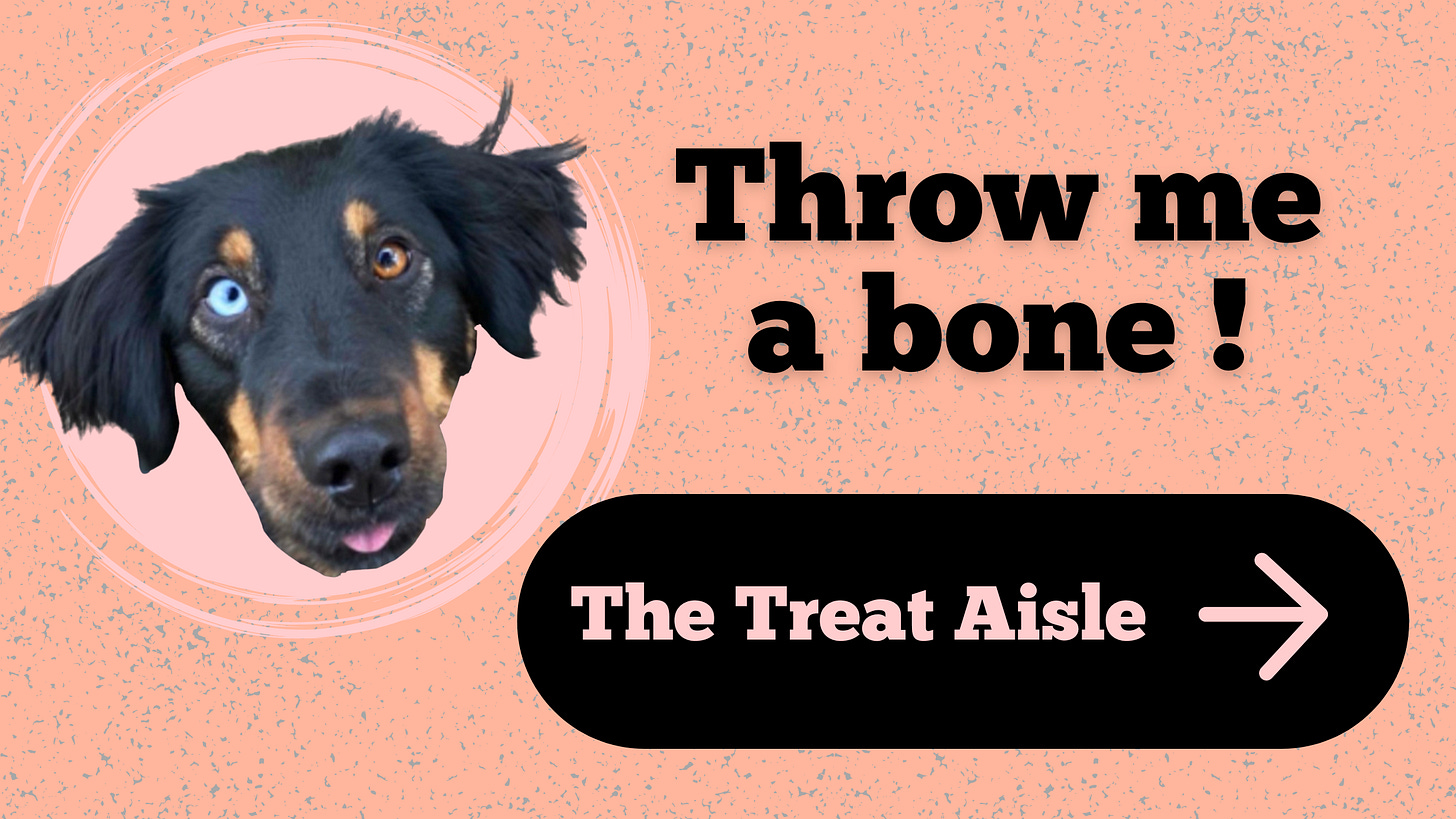Pants has a great skill of knowing what signals mean she might get a treat. When she hears us open a very specific kind of Tupperware, she comes running because that’s what we used to keep the hot dogs in when we were crate-training her. She stands very close to me at breakfast because she knows she’s going to get a dollop of Greek yogurt. And when I pull out the arugula box, she sits a few feet behind me because if I’m making a salad, it means I’m chopping apples, and if I’m chopping apples, that means I’m throwing a couple pieces over my shoulder for her to catch—which she does…30% of the time.
In other words, Pants has a great memory for positive things. If only we humans had the same.
Have you noticed how good our brains are at remembering the negative? Sure, your boss told you five things you’re excelling in at work, but she also said you need to respond to emails more promptly, so that’s what you lie awake at night thinking about, along with the weird thing you said at the party last week, the issue your partner brought up a month ago, and that comment your mother made about your ankles when you were fifteen. Such fun!
Researchers have proven the power of positive thinking over and over again. So why is positive thinking so doggone hard?
I have a theory I call berries and bears.
Let’s say you’re a hunter-gatherer. You’re tromping through the forest, and you stumble upon a fantastic cache of blueberries. Score! There’s so many berries here! You’re so excited to take them back to your tribe. Best day ever!
But then you hear a twig snap behind you. You turn around slowly, heart in your throat. Only a hundred feet away is a mama bear and her two cubs. She hasn’t noticed you yet. It’s time to run.
When you get back to your tribe, are you going to tell them about the berries or the bear? Definitely the bear, because you have to warn them of the danger. That’s the highest priority.
Finding lunch is irrelevant if you’re going to be lunch.
And that’s why our brains focus more on bears than berries.
Of course, your boss’ feedback, your embarrassing moment at the party, and the conflict with your partner aren’t bears. They’re not life-threatening. Unfortunately, our brains are spectacularly bad at telling the difference between an actual threat and a mild to moderate stressor. The guy who cut you off in traffic is a bear. The potential conflict with your neighbor is a bear. The text from your mother about Thanksgiving is definitely a grizzly.
Your poor brain is working so hard to keep you safe from this bear-filled world, but it doesn’t realize that these aren’t bears. Sure, some things actually do meet criteria for bear status: cancer, car accidents, and wildfires spring to mind. But most things are pseudo-bears, things your brain is freaking out about that aren’t a threat to your existence.
So what’s a brain to do?
Notice the Bear
If you’ve been with Dog Lover’s Guide for a while, you know that we’re big fans of mindfulness over here. It probably won’t surprise you, then, that mindfulness is the first step in retraining your brain.
Mindfulness means nonjudgmentally noticing the present moment. Whatever is happening in the present moment, just notice it without judging it. You don’t have to control or change your thoughts. You don’t have to empty your mind. You don’t have to do anything except notice what’s happening.
What does that look like? Well, let’s go back to when you’re lying awake at night, and your brain starts the bear parade. Picture each of those thoughts and then draw a circle around each one. Now they’re each contained in a bubble. Here’s the bear, “I embarrassed myself.” Here’s the bear, “I’m not good at my job.” Here’s the bear, “I’m going to fail my final exam.”
Next, picture each emotion as contained in a bubble, too. Here’s embarrassment and fear and overwhelm.
Now you have a bubble with each of your thoughts and feelings floating around in your mind. Allow those bubbles to provide a bit of distance between you and your thoughts and emotions. You don’t have to pop the bubbles or change what’s in each bubble. Just observe them with curiosity.
Okay, but Is It Really a Bear?
After noticing each thought and feeling, ask yourself, “Is that a bear?” In other words, is this life-threatening to me right now? In this present moment, with the moon shining outside and the house all dark and quiet, are there any bears in your bedroom?
The answer is probably no. Take a deep breath and say, “These are not bears.”
Go Foraging
Now let’s talk about the berries. Remember, your brain is good at looking for bears, but not that great at remembering the berries. This has been adaptive in the past; it’s allowed you—and our whole species—to survive. But if all you ever focus on is not getting eaten, then you’re never going to focus on eating. In today’s world, that means that your brain doesn’t naturally focus on the positive things. You have to intentionally remind yourself to do that.

So let’s go foraging for berries.
What is one thing that made you smile this week?
One thing you’re proud of?
Did you surprise yourself by doing something you didn’t think you could do?
What made you laugh out loud?
When did you feel cozy?
What was your favorite bite to eat?
What about your favorite moment with your pup?
If you find that it’s hard to recall these things in the middle of the night, you’re not alone. Here are some ideas for making this a little easier:
Make a kudos folder on your phone or computer. Every time someone sends you a kind email, writes a sweet comment, or pays you a compliment, pop it in the folder. I have screenshots of every comment left on Dog Lover’s Guide that shared how Pants and I were making a difference. Whenever I feel discouraged, stuck, or like an imposter, I read your comments. It keeps me writing.
Get a stack of post it notes and a jar. Label the jar, “Berries.” Every day, write one thing you liked about the day and put it in the jar. Whenever your brain is crowding the room with bears, start picking berries out of the jar. Take a minute to really remember what it felt like to be in that berry moment.
Make a file in your phone labeled, “Good Job.” Every time you feel proud of something you did, immediately write it in the file. Talked about something hard in therapy? Put it in the file. Took the trash out even though it felt insurmountable? Write it down. Answered that phone call you really didn’t want to take? Pop it on the list.
We may not naturally be as good at finding berries as Pants is, but the amazing thing about our brains is that we can train them. We can turn our brains into berry-hunting machines, and find joy in something as simple as a bite from a really good apple or the moment our favorite person walks in the door. The pseudo-bears will still show up, and that’s okay. Just keep looking for those berries.
So what’s your favorite berry of this week?






This was very helpful, I'm going to paste the questions to my phone and start a good habit. Because letting Hulu next episode for 4 hours a night while I eat chocolate chips in the dark might not be the best way to escape bears.
My favorite moment with our Maverick was him hugging me this morning.
When our daughter was younger, and we still had a bedtime routine, we would each do 3 things we were thankful for from that day. Trying our best to find the berries.